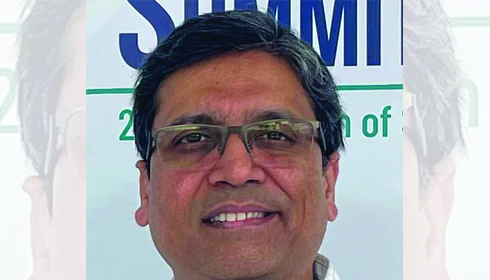
Kolkata doctors perform 5-hour surgery to correct rare radiotherapy related complications in cancer survivour
A team of doctors at a Kolkata hospital has saved the life of an elderly woman from Mizoram who came to them with complaints of profuse rectal bleeding after a 5-hour laparoscopic surgery.
The team, comprising gastrointestinal oncosurgeon Dr Sanjoy Mandal, gastroenterologist Dr Sudipta Ghosh, gynecologic oncologist Dr Subhadeep Chakraborty, anaesthetist Dr Bharati Roy, and medical oncologist Dr Prosenjit Chatterjee, performed the marathon surgery on the patient to remove portions of her small and large intestines.
Speaking exclusively to Drug Today Medical Times, gastrointestinal oncosurgeon at AMRI, Salt Lake, Dr Sanjoy Mandal who led the surgery, said, "The patient had a history of suffering from cervical cancer and had undergone radiotherapy and returned home after being declared cancer free."
He added, "She was alright for the nine months; thereafter she suddenly developed severe episodes of bleeding from her rectum," referring to a rare side effect of radiotherapy that causes injury and inflammation of the intestines and can lead to rare complications.
Providing further details of the case, Dr Mandal said that preliminary investigations revealed that she was suffering from radiation-induced bleeding from her large intestine, and on further detailed investigations doctors found that she had developed ulcers in her small intestines as well.
"When medical treatment failed to stop her bleeding episodes, the team members decided to operate on her and remove the affected portions," Dr Mandal said.
"We performed a high-risk surgery in which portions of the large intestine, small intestine, uterus, and ovaries were removed," Dr Mandal said.
Also Read:
| - Doctors use complicated microsurgery to remove 2 needles swallowed by mentally challenged man accidentally |
Pointing out that the team also performed intraoperative enteroscopy, an effective tool in selected patients with occult gastrointestinal bleeding that correctly identifies a treatable source and prevents recurrent bleeding in about 40% of patients to confirm the source of bleeding, the gynecologic oncologist commented that it ensured that all sources of bleeding had been covered and ensured a quick recovery for the patient.
"During surgery, the patient also required the placement of a special catheter in the urinary tract to prevent injury," he added.
According to hospital sources, the patient needed monitoring in the ICU for three days and 14 days' stay in the hospital before she was discharged, and now she is doing well.